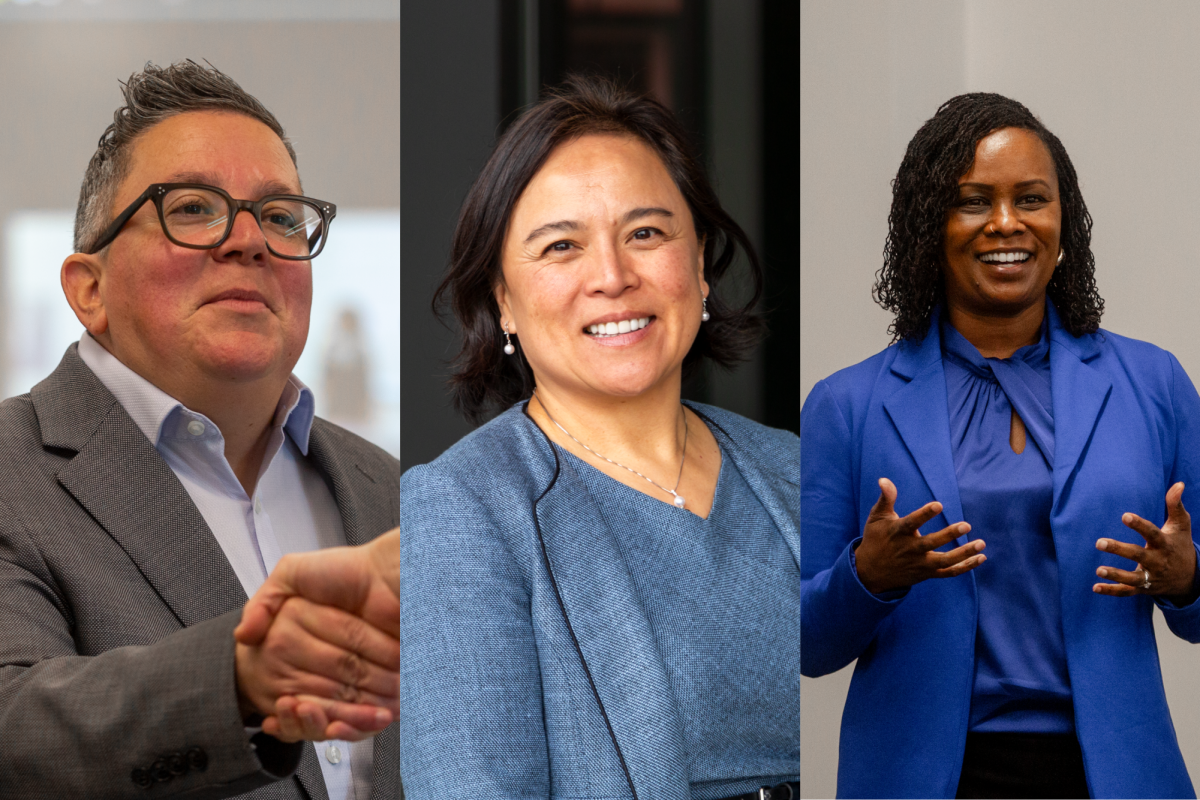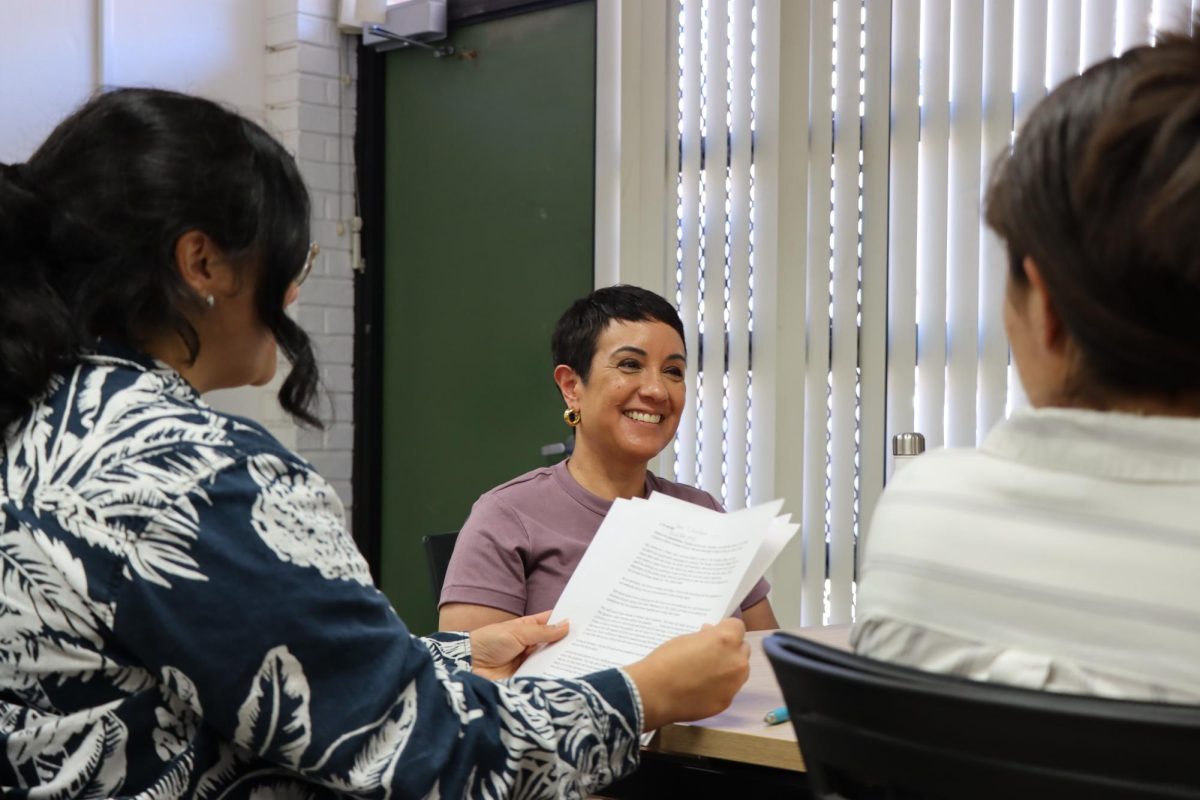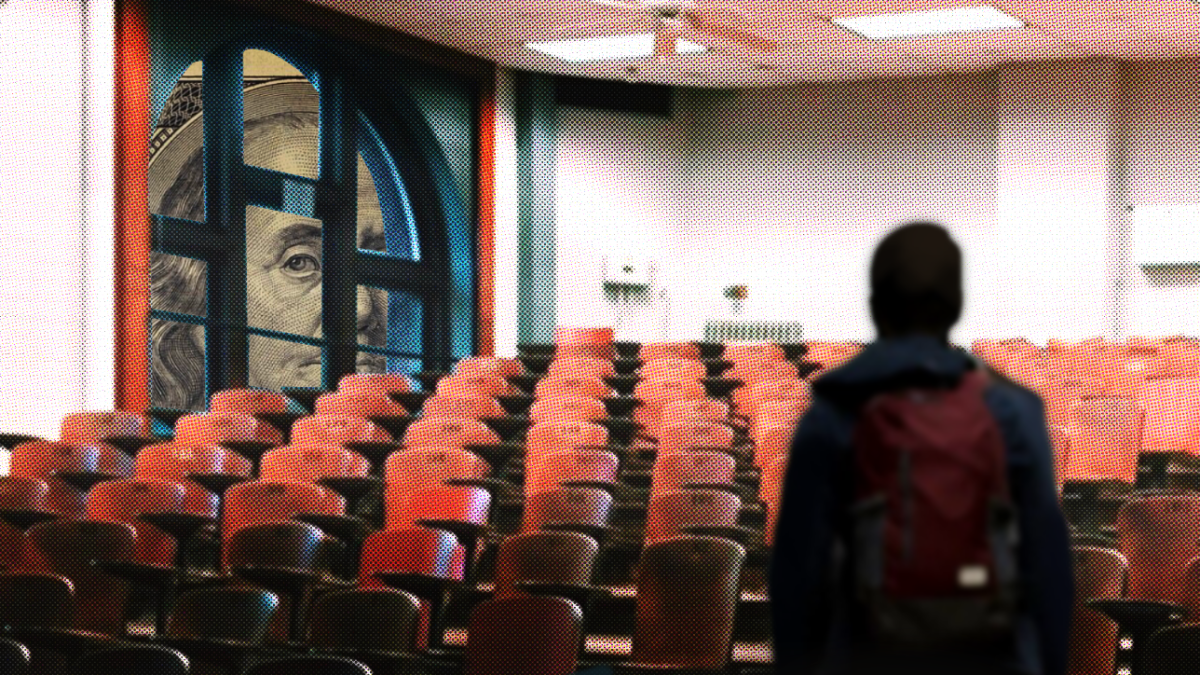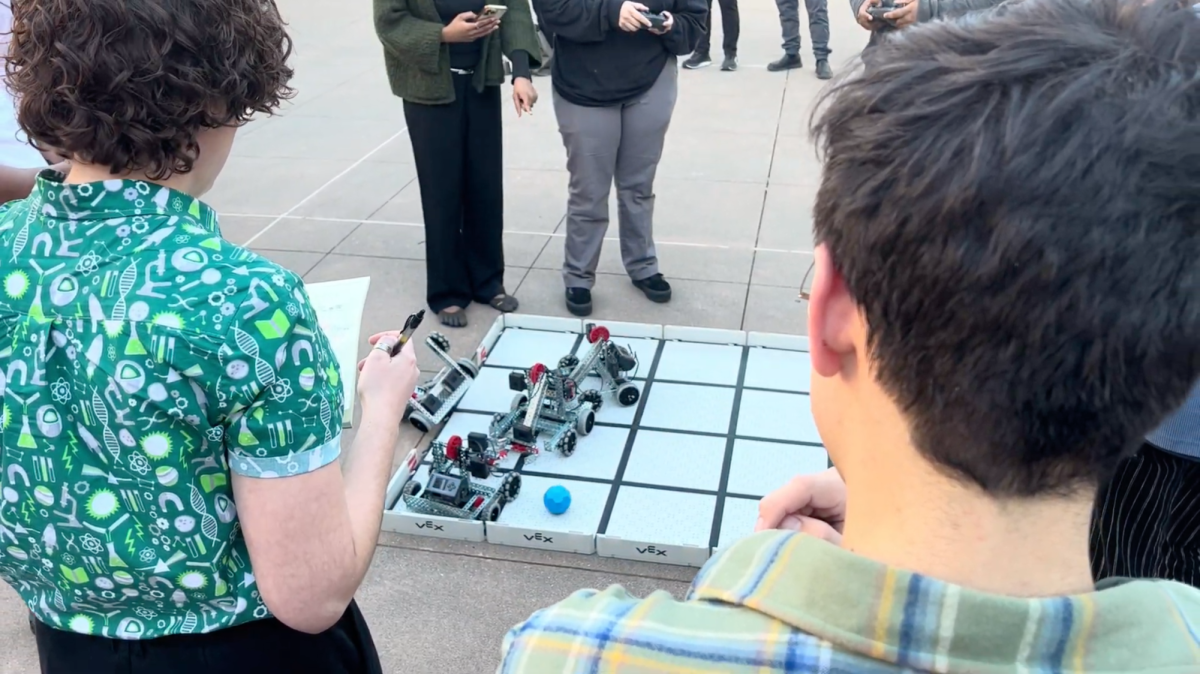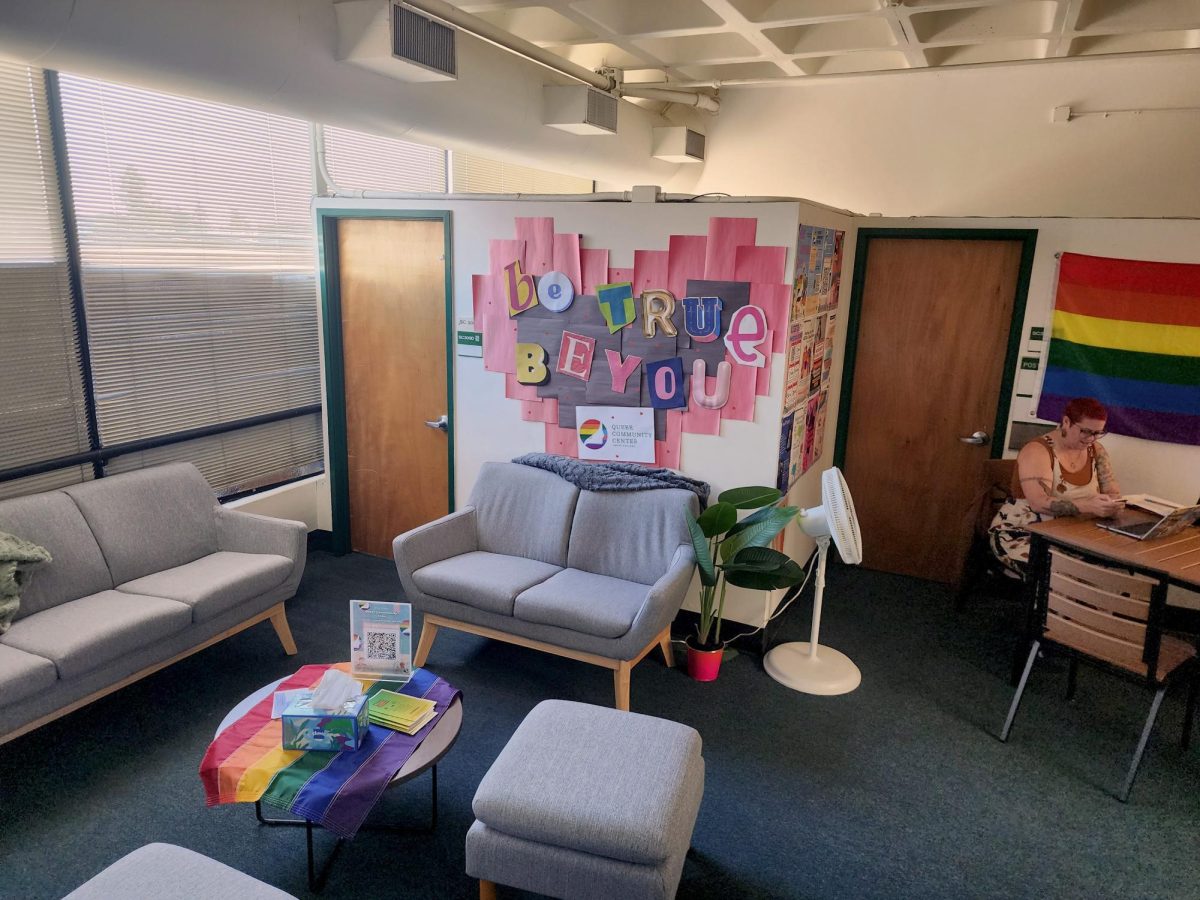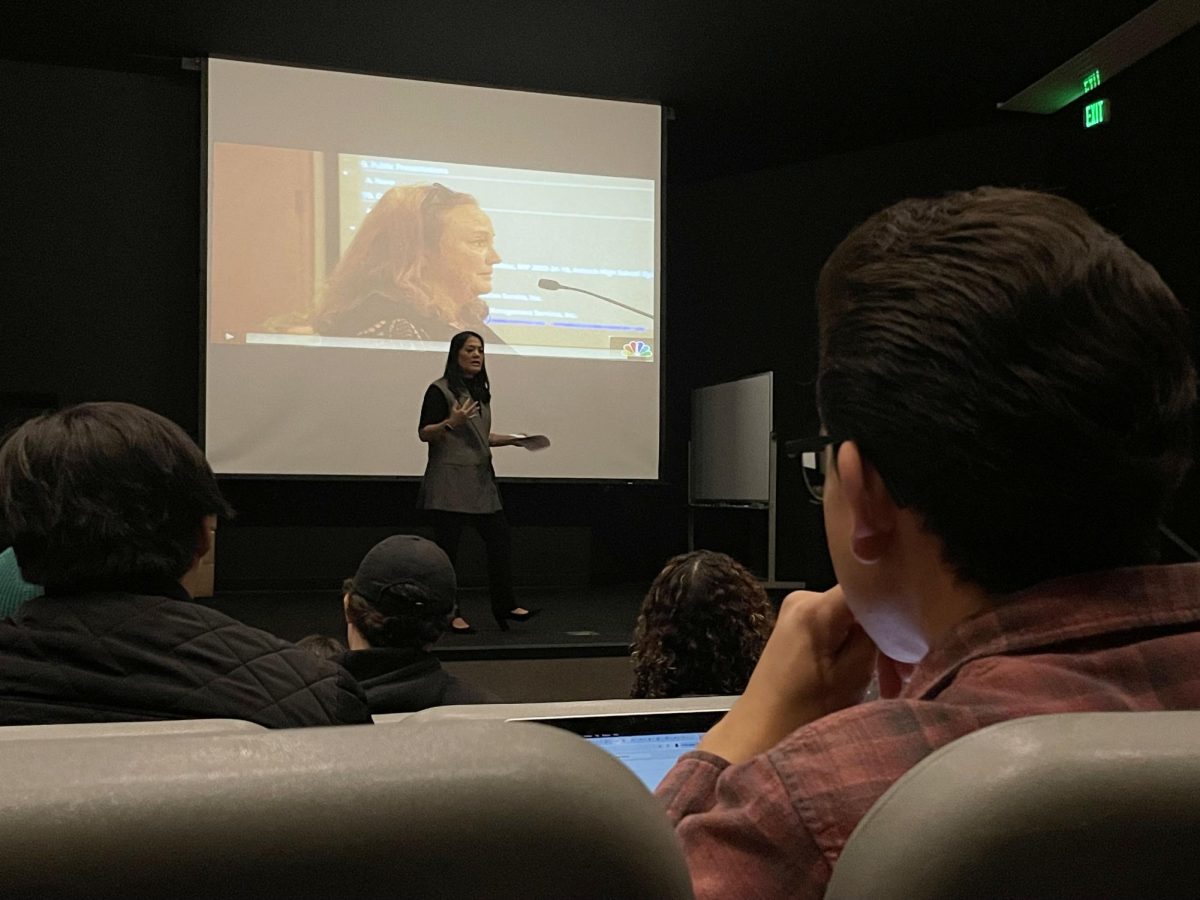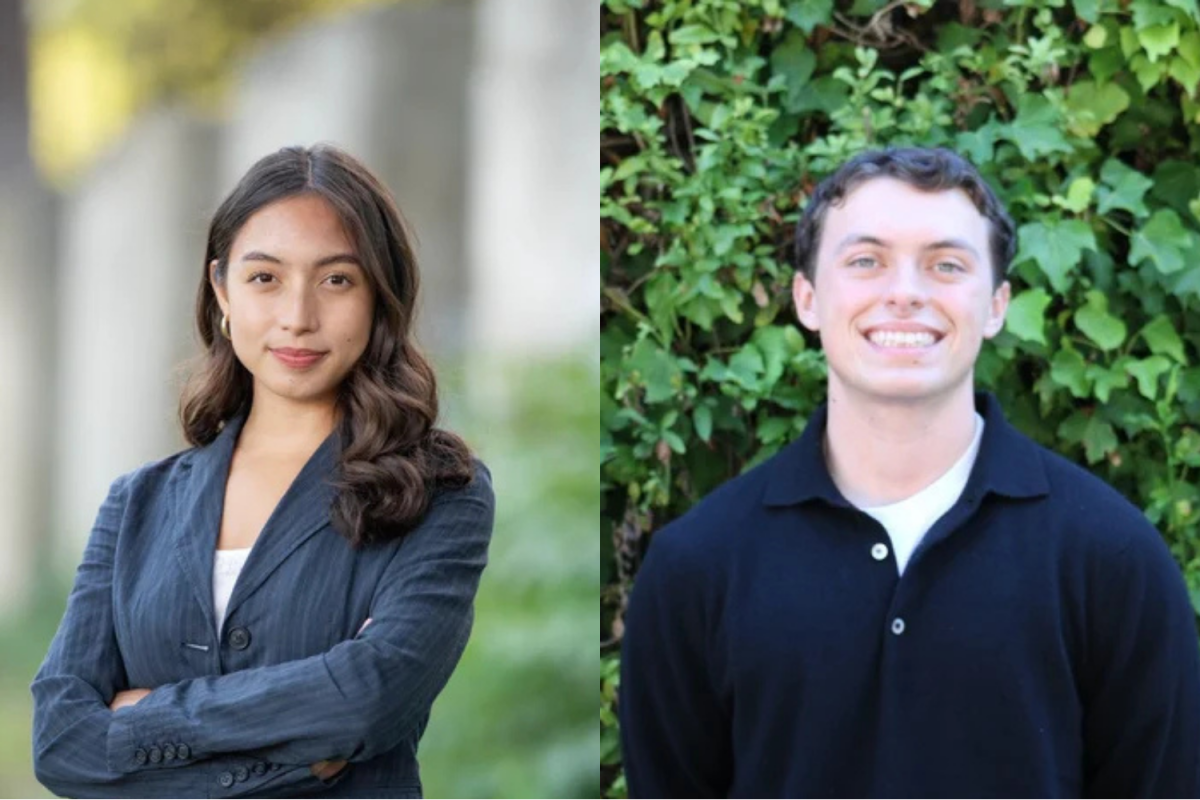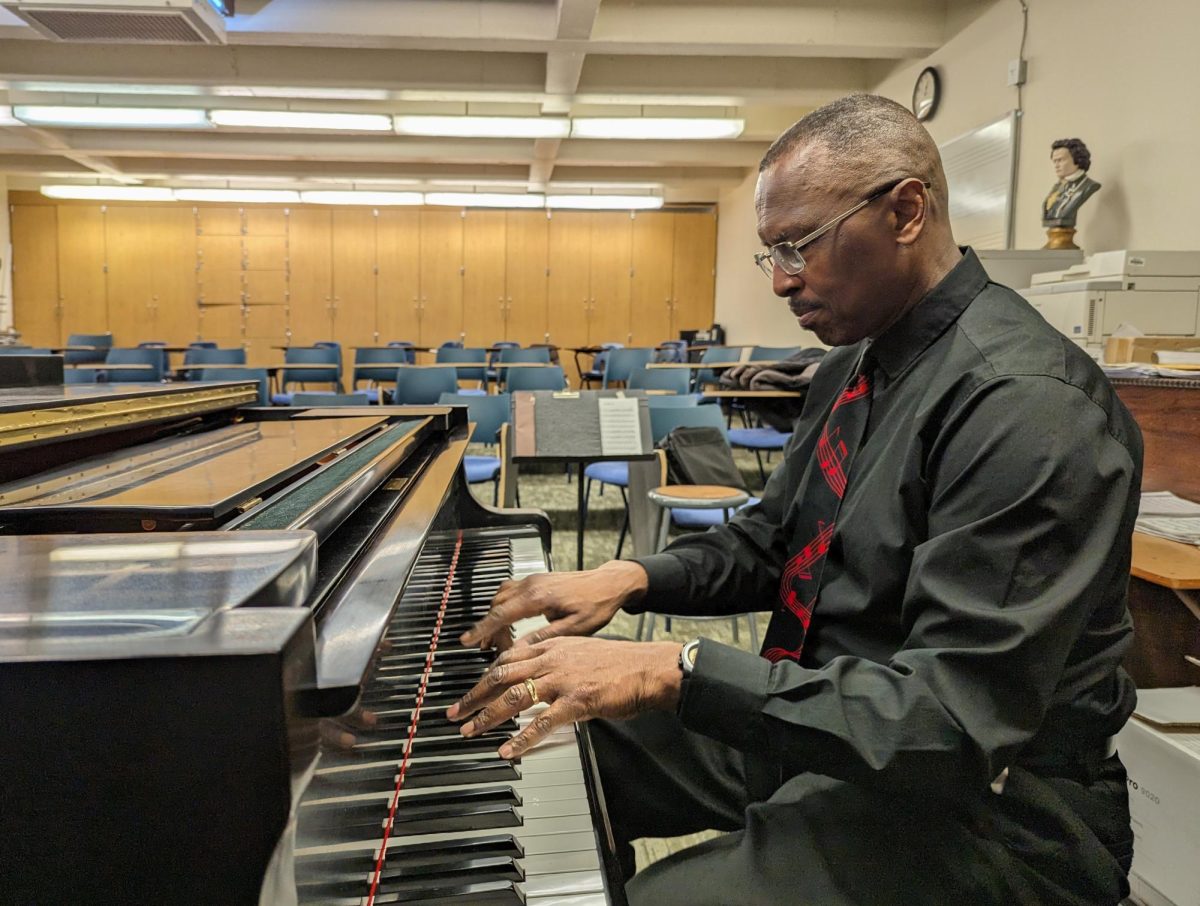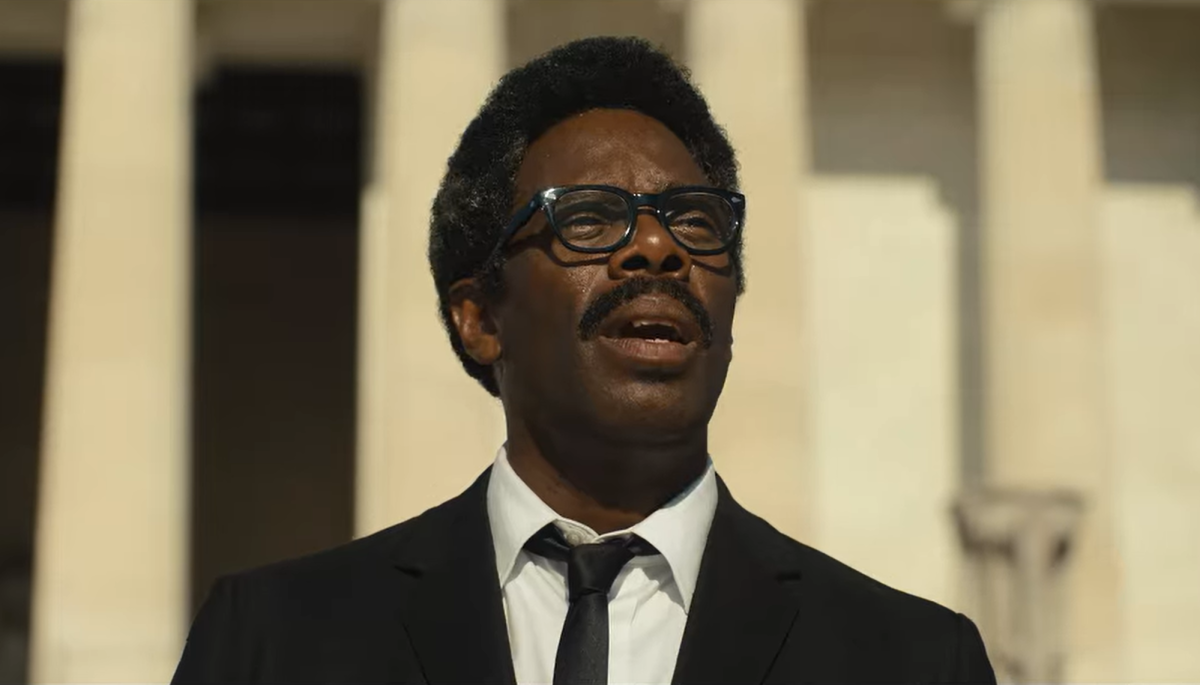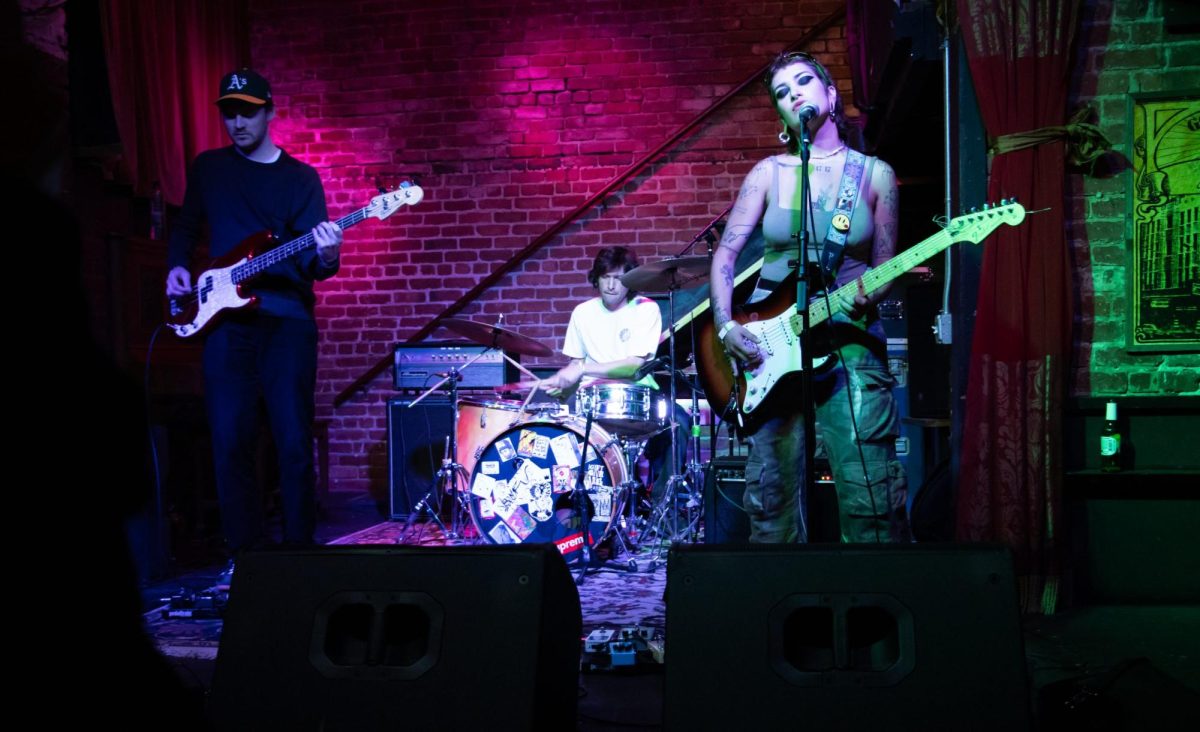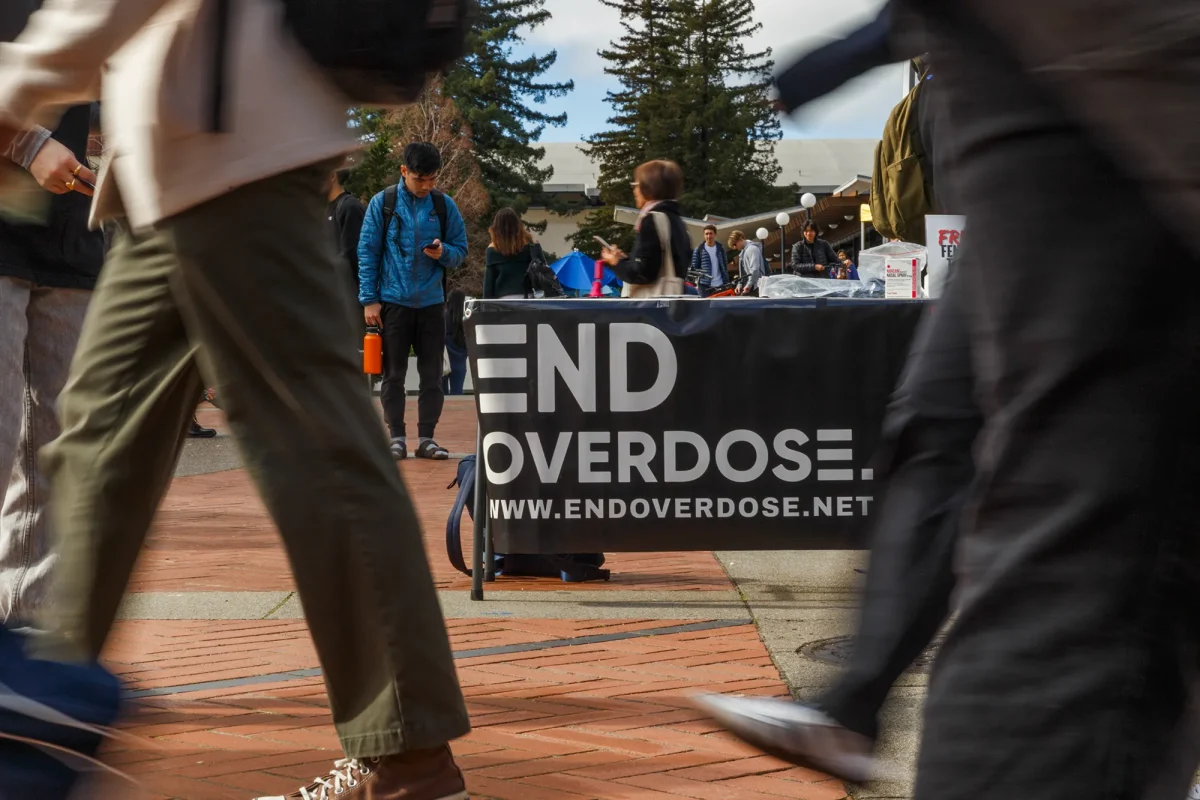After ten days without solid food, hunger strikers at San Francisco State University announced a tangible resolution following their actions to protect and advance its College of Ethnic Studies.
“Thanks for your support, but the fight is not over,” announced one organizer to the crowd of about 100 students who came to campus that day to rally with Third World Liberation Front 2016.
The protesters were situated amongst a handful of tents and lawn chairs, under a tree facing the library. Some were visibly exhausted and weathered, as they listened to the statements being made, the fruits of their labor.
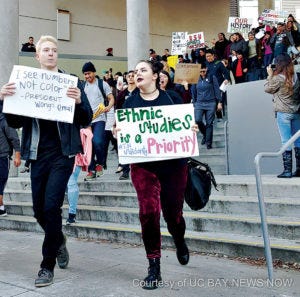
Protesters at SF State march from the college’s Ethnic Studies Building at SF State to the 7 Hills Conference Center on Feb. 25, 2016.
Students and strikers were not completely satisfied with how some of the demands were met, “they addressed all 26 demands, but we didn’t have enough info to know where money is and how we can allocate it under bureaucracy,” said one student who’d attended the meeting.
“We can call this a victory, but because we didn’t get everything we struck for, I want to encourage everyone to keep involved in our efforts,” said another.
Students and professors from colleges near and far invested their energies into the strike.
An SFSU Asian American Studies Professor who camped out with strikers, Kei Fischer, stated in an interview: “The point of them camping out on campus was to bring attention to this issue and for students and people to even engage in dialogue.”
MAKING DEMANDS
On May 6, a letter was sent to SFSU President Wong, on behalf of Laney College, stating, “we stand in solidarity with the College of Ethnic Studies and the Third World Resistance Front 2016… we urge you to immediately address the demands of the students, faculty, and staff invested in preserving the future of the only Ethnic Studies College in the world!”
The letter was signed by 30 faculty and staff.
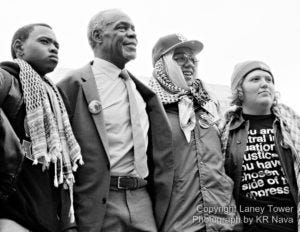
San Francisco State University students and hunger strikers Hassani Bell, Akheel Mestayer, and Julia Retzlaff take a break from protesting to snap shots with actor Danny Glover.
Ethnic Studies Professor, Alicia Caballero-Christenson said that “as a mixed race Xicana activist, I gravitated towards Ethnic Studies as an undergraduate and graduate student, because it allowed me to better understand myself, my community, and the world we live in.”
She considers Ethnic Studies a life-changing discipline, for herself and her students.
“It is an area of study that empowered me as a student activist and woman of color,” she said. “Ethnic Studies empowers all students to understand their own struggles and experiences as authentic community assets. Through honoring different forms of knowledges and histories, students can develop an empowered sense of self.”
The following day, on May 7, President Leslie Wong released a document, which detailed how the college would respond to the strikers’ demands.
“Dear SF State Community, I am pleased to share the positive outcome of today’s negotiations,” it began.
The letter promised an allocation of $482,806 in order to meet the Liberation Front’s demands. It also promised that, “the President will convene a Task Force on the Advancement of the College of Ethnic Studies, comprised of students, faculty, staff, and administrators to engage in ongoing planning, dialogue, implementation, and monitoring of substantive progress towards upholding and enhancing the College.”
The letter also promised to promote fiscal transparency, support the full-time employment of two tenured faculty positions in Africana Studies, and to take action around creating a college of Race & Resistance Studies by May 16th, 2016.
Many realize that the demands were not met by the school without trepidation or resistance.
“The provost and president denied the hiring, claiming there wasn’t enough money in the budget even though it was already in the budget of the department,” said Fischer.

Many from outside the SF State community came to campus to support the protesters, including Academy of Art University student Gigi Giacomo (left) and Laney College student Octavia Butler (right).
“There was no way the students and faculty were going to stand for that. The strike brought money to hire these two positions.”
SETTING PRECEDENTS
While SFSU is known to be an historic battleground for the Ethnic Studies program, many argue that the college is responsible for setting a precedent for the rest of the country.
Strikers from colleges all around the Bay Area were present at the strike and full of convictions that the battle did not stop at the borders of SFSU.
“The proposed cuts targeting the College of Ethnic Studies at SFSU are connected to a larger pattern of dismantling Ethnic Studies programs across the country,” said Caballero-Christenson. “In Tucson, Arizona for example, the school district banned the teaching of Mexican American Studies in public schools.”
She challenged the idea that Ethnic Studies is an expendable discipline.
“Programs like Ethnic Studies are proven to support student success, yet they are often the first programs to be defunded or cut,” she said. “An attack on one Ethnic Studies program is an attack on all Ethnic Studies programs across the country. Students, faculty, and community must be organized to fight and defend Ethnic Studies.”
1968 TO 2016
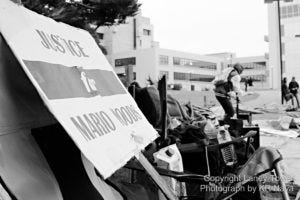
The protests at San Francisco State University encompassed issues reaching beyond the campus. For example, signs demanding justice for Mario Woods, a Black man murdered by the San Francisco Police Department in 2015, were visible.
While students considered outcome of the strike a victory, the importance of skepticism, and questioning of the administration still echoed through the crowd. “I don’t consider [President Wong] an ally,” said an SF State student who attended the meeting.
“I always feel like I can’t trust the administration. This was about bad press, not good faith on his part.”
Strikers wanted to establish that the movement was far from over, and that everyone still needed to work together to bring about change.
“If we want to change this university, this whole lawn should be covered. It needs to be like 1969,” exclaimed one activist.
It had been 48 years since the Third World Liberation Front struck at SFSU for Ethnic Studies. They fought for the creation of the department at the college. Just last February this department was threatened by budget cuts, and lack of job security.
The recent strike began on May 1st in the wake of the Frisco Five’s hunger strike against the SFPD’s history of corruption.
“SFSU has the only ethnic studies college in a 4 year institution,” said Fisher.
“Over the last almost 50 years, there have been cutbacks on ethnic studies programs everywhere. It’s a constant fight… the hunger strikers called themselves Third World Liberation Front 2016 in honor of the multicultural coalition of students of color who organized the original 1968 strike.”
‘PRODUCT OF A DREAM’
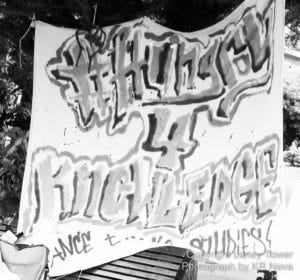
Alongside were blankets declaring #hungryforknowledge, a reference to the hunger strike.
As the protest on campus came to an end, people crowded together tightly.
They were attentively listening to the closing statements of the strikers.
“Who are the people this land belongs to?” asked on protester. “If they take away ethnic studies from San Francisco of all places, what’s going to happen in the rest of the country? We can’t let this be erased! If they take that away, that’s our identity, gone.”
Another protester agreed. “They’re attacking our ability to write history,” they said. “This is a national movement. Our ancestors are warriors, and we stand on their shoulders.”
An older activist shared inspiring and validating words with the crowd.
“Reasonableness is out the door,” the activist said. “Seventeen days ago, they said, ‘this isn’t the right approach.’ Today, Supervisor Jane Kim said, ‘Chief Suhr needs to be fired.’”
The activist continued.
“We will win, and they are scared, and they know it. I’m standing on the truth and walking on the truth, and you will join us.
“I believe that we can … everything you see manifested before you, is the product of a dream.”


